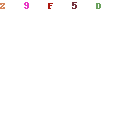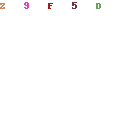
Discover our Selection of the Best Golf Iron of April 2024, including the Top 10 Sales in April 2024 on Amazon.com!
No products found.
Are you looking for the best golf irons for your Index and at the best price?
Then you are in the right place because we have chosen for you the top of the best Golf Irons amongst the Titleist, Taylormade, Ping & Cobra brands based on the technical characteristics of the Golf Clubs, the tests performed and the golfers’ feedback according to your budget $100-350 for cheap golf irons or between $750-1350 for high-end golf clubs.
Golf iron Purchase guide April 2024
For me, irons are the offensive weapons of choice – when I take it out of the bag, it’s to attack. Irons make up the vast majority of clubs in our bag, so finding the right set of irons can greatly enhance our game. How do I choose my golf irons? There are several types of irons with different specifications, and this page will guide you to the ideal series of irons.
Types of Golf Irons
Forged irons
Forging a club is in every way similar to what the village blacksmith used to do back in the old days. The metal is cast into a coarse shape, then hammered into the desired shape. The manufacturer then obtains a raw cast of iron, which resembles approximately the final result. The carbon steel club head is then refined by milling, grinding and polishing.
The end result is a solid, one-piece iron with a reduced soft spot. Ideally, forged irons are intended for the right players who give great importance to touch and feel, as well as the ability to shape shots and control the trajectory.
Molded irons
This is the alternative option to forged iron and cast iron. This type of iron involves pouring the molten metal into a mold, which then allows manufacturers to sculpt more complex head shapes. For this reason, molded irons are more suitable for irons made of multiple materials, peripheral weighting, and more complex. The casting process is easier and less expensive than that of forged iron, which is why it is cheaper.
The design of the irons
The blades
The blades are designed for the best golfers and have a thin face, a thin top line, and a compact contact surface for maximum feel. The mass of the blades is distributed evenly over the entire head, creating a small, precise sweet spot in the center of the head, and thus requiring high demands. These are weapons designed for the purists.
Rear cavity irons
A cavity iron is a club that has a cavity in the back of the head, concentrating the majority of the weight towards the periphery. By adding more weight to the edges of the head, the moment of inertia (MOI) or, more concretely, the club’s tolerance is increased. Typically a wider club head will be associated with a thinner club face, which means that off-center shots will travel further and straighter than off-center shots with blades.
This increased tolerance reduces the sensation and means that rear cavity irons are more suitable for medium to high skilled players who will be able to benefit from a higher sweet spot.
The series of golf irons
The irons are usually sold in series of up to 9 irons. In each series, the irons are numbered to match the club’s loft. Long irons are commonly numbered 2,3 and 4, although nowadays it is rare to find 2 or even 3 irons.

The most common irons are 5, 6 and 7 and the short irons correspond to numbers 8, 9, and golf wedges such as Pitching wedge (PW), Gap or Attack wedge (GW or AW), Sand wedge (SW) and Lob wedge (LW).
Hybrid iron series
Dedicated to players who struggle to hit long irons, the hybrid series of irons includes short and medium rear cavity irons but the long irons are replaced by hybrid clubs of the wood/iron type.
The advantages of this type of series are clear: the rear cavity irons offer maximum tolerance and control for shorter approach shots on the course, thanks to their lower and more remote center of gravity.
Finally, hybrid clubs combine the control and precision of long irons with the distance of fairway woods. For a beginner or a senior player, this series is the perfect mix to assist your iron game.
The shafts
The steel shaft
The usual choice for an iron shaft is steel. Steel is stronger and heavier than graphite, producing less bending and more regularity and precision. The carbon steel or stainless steel used in golf shafts is thick and offers constant rotation and flexibility, allowing you to enjoy the same flexibility and rigidity in a 4 iron as in a 9 iron. The low price and durability of the metal make the steel shaft a popular choice for all golfers.
The graphite shaft
Less common than steel for irons, graphite can be an advantageous option due to its light weight and flexibility. It will increase swing speed and free up more distance to your game.
The disadvantage of graphite comes from the feeling of the shaft. A stiff graphite shaft will not provide the same feel as a stiff steel shaft and the feel may be different within the same series of graphite shaft irons.
Another disadvantage is the price; the manufacturing process of graphite is more expensive than for steel. Nevertheless, if you are in one of the senior, junior or lady categories, who prefer the light feel of a club, the extra money spent will be a benefit.
Multi-material shafts
A less frequent method of shaft design is the multi-material shaft. This type of shaft combines steel and graphite in a single shaft. It tends to be composed mainly of steel, with a graphite tip. The steel section of the shaft offers a solid handle that gives more control to the ball trajectory. The graphite part allows the club to generate a limited amount of additional speed that helps to obtain additional distance. The graphite tip also filters out unwanted vibrations on impact to optimize the feel of each shot.
How many clubs should I buy?
This may seem like a basic question, but in reality, there are many options when it comes to deciding which clubs you want to buy.
The most popular series includes irons from PW to 4 iron. Many experienced players will opt for the 9-iron to 3-iron series, leaving room for specialist wedges. A novice or older player can opt to go on the series with the SW at 5 iron and give themselves the freedom to choose utility or hybrid clubs and fairway woods instead of long irons while enjoying the more forgiving wedges provided with the series.
An important point in the customization of the series is the distance difference. This means paying attention to the distance at which you usually type each of your clubs and more precisely the distance between them. If you have significant deviations, it may be useful to adjust the configuration of your club series.
Try the golf iron before you buy!
One of the great joys of buying clubs today is the opportunity to try them out before buying them by making your way to your local golf store. I can’t say it enough, finding the right clubs for you is a good thing, but unless you really try them and realize the feeling and the result, you can never be sure you’re getting the perfect series.
Custom fitting
Custom fitting is a service offered by all major manufacturers. The ability to adapt the specifications of the irons to your size and swing is a very useful method of buying clubs. An average series is designed for a player about 5 feet 10 inches tall. If you are not this tall, it is likely that you will benefit from a custom fitting session.
The adjustment consists in customizing the length of the shaft because the taller you are, the more you will need a long shaft and maybe even a straightened or more vertical shaft. The shaft stiffness could also be adjusted to adapt it to your swing speed so that the club head does not come too open or closed at the time of impact. Even the design of the head can be modified to adapt it to your swing and the desired strokes.
A personalization session can last approximately 30 to 60 minutes in your local sports shop or golf shop. Some manufacturers have fully equipped customization centers with the latest technologies to make you tuned like a Tour pro.
It may cost you a little extra, but many manufacturers offer this service for free if you buy a series from them. Ultimately, any additional investment will certainly save you savings in the long term, as you will have a series that is perfectly suited for you.
The demonstrations
These are the days when golf companies offer golfers the chance to try out their latest equipment and get advice on specifications and any other questions you may have. Some demonstrations release custom fitting trucks containing a full range of swing analysis equipment to help you build the perfect club so you can order your series on site.
Our Selection of the Best Promotions on Golf Iron in April 2024
No products found.